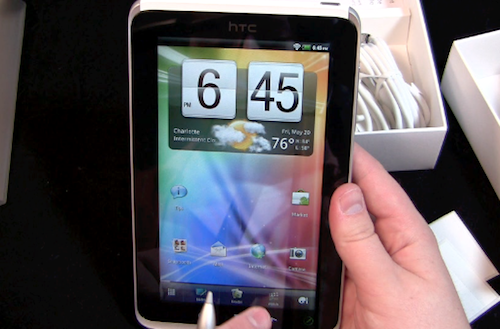
When it comes to the mobile operating system of choice, it’s not just about the software. We have to hold and use the hardware just as often as we have to make use of the software, after all. And that’s one of the reasons that Android is so attractive to the end user, or the general consumer. There are just so many options. If you’re looking to make Android the next mobile operating system you use on a regular basis, then there’s a lot to consider. For the manufacturers, though, making their devices stand out is a top priority. And for one of those companies, HTC, many believe it has been a tall order to stay at the top of the growing pile of names thrown into the Android mix. So has HTC stayed on top, or is the company that brought HTC Sense into the world slipping?
Almost every single manufacturer that has adopted Android into its portfolio is a major competitor in several different markets. Names like LG and Samsung, for instance, tell us that while these companies may dabble in other markets, the Android name brand is one that’s too lucrative to pass up. But while these companies may inherently see plenty of lime light with their high-end Android-powered smartphones, not many get the same adoration that HTC does. After all, it’s believed by many that HTC is the company that truly brought Android into the “real world,” and made it accessible to the general public.
Before the launch of the HTC Hero, and the unveiling of HTC’s proprietary software Sense, Android wasn’t the talk of the town. Right off the bat, despite the uniqueness of Android (and even of the HTC G1), it was quickly being labeled as a “niche OS,” built primarily for developers and other “techies.” It wasn’t a mainstream OS, basically. But all of that changed the moment HTC’s Sense UI hit the scene, and suddenly Android’s customization was all too obvious. More to the point, HTC’s usage of the OS and their proprietary software made it possible for the general consumer, the Mom and Dad, to pick up the device and use it, without having to have any advanced technical knowledge.
Since then, HTC has been a front-runner for the plethora of Android-powered devices that have hit the market. There’s no denying that HTC has the majority, if not perhaps the most, Android devices available on the market, all across the globe. But despite that, the competition hasn’t slowed down. Actually, quite the opposite. Android’s adoption by almost every major smartphone manufacturer has not only lead to an arm’s race for the best hardware, but also a way for manufacturers to release more devices than ever before at one time, all with the hope that more people will buy them.
And these same manufacturers have all tried a stab at creating their own software to put atop Android. Samsung, LG, Motorola, and even smaller companies have tweaked Android in some fashion or another, all to either the dismay or happiness of the customer. Some companies have well-received proprietary software installments, while others are forced to listen to the complaints of the general public. And while Sense UI has seen plenty of renovations since its debut, it seems that the general public still accepts Sense as one of the best proprietary user interfaces out there, with the real fight being for second rather than first.
I personally believe that HTC is still the king of Android at this point. Not only in the amount of devices out there available to customers, but also for the company’s ability to create a proprietary software that’s both visually appealing, and yet very useful. Of course, it remains to be seen as to whether or not HTC can hold onto that position, especially with more and more high-end devices coming from other manufacturers. Will any of them be able to replace HTC as the king of Android? Or is the reigning champ destined to keep its title for the foreseeable future? Let me know what you think in the comments below.